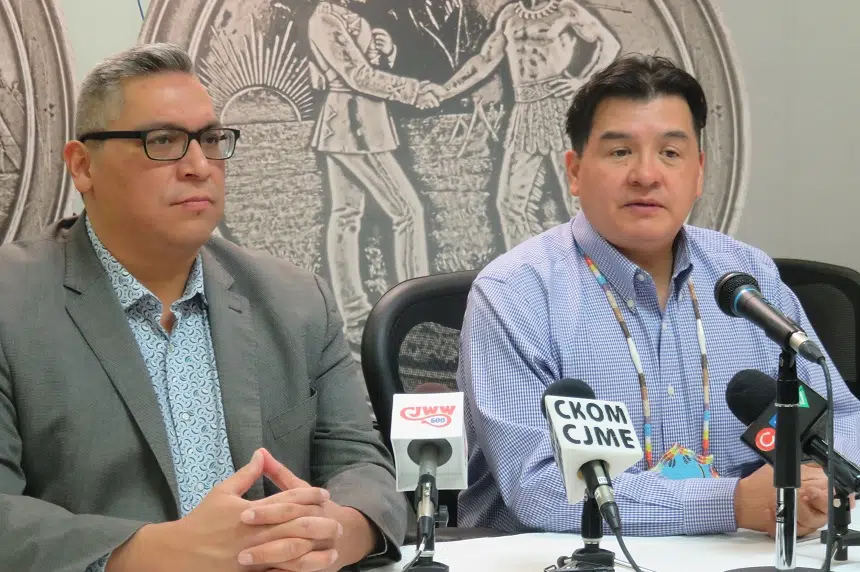The Federation of Sovereign Indigenous Nations (FSIN) is urging the federal government to keep their focus on passing child welfare reform legislation, despite the distraction of the SNC-Lavalin affair.
In a news conference Friday morning, FSIN Chief Bobby Cameron said it was paramount to change the foster care system to allow First Nations jurisdiction over their own children.
“Let this continue,” he said of the reform, which was initially supposed to be brought to the House of Commons floor at the end of January.
“We’re urging, encouraging and demanding that this federal government prove it when they say the most important relationship is with First Nations, that reconciliation is continuing.”
Child welfare reform was first announced by the federal government in November, when then-Indigenous Services Minister Jane Philpott said the system was “broken” and was taking too many Indigenous children away from their families.
Cameron said while they’ve been assured the legislation is still a priority, there’s some concern that the attention being paid to the Prime Minister’s Office controversy surrounding the alleged pressuring of former Attorney General Jody Wilson-Raybould is distracting from the push for change.
“We (couldn’t) care less with what’s going on internally in the federal government,” Cameron said. “We care about our children much, much more.”
Cameron and Pratt met with new Indigenous Services Minister Seamus O’Regan to emphasize the importance of the legislation when he was in Saskatchewan Thursday to announce funding for the Fond du Lac airport.
The FSIN is proposing a system that would take foster care of First Nations children out of provincial jurisdiction, with funds instead being directed to First Nations to manage the child welfare system.
“The provinces have to vacate that seat,” Vice Chief David Pratt said on Friday. “They’re failing our children, they’re not doing a good job. We believe we can do better.”
He said the First Nation-led system’s priority would be to keep children in their family’s care, and around their own culture.
“Some of our people that have issues … they have grandparents or they have parents or uncles and aunts who are leading perfectly good lives,” he said.
“There’s plenty of opportunities to keep them within their family or within their community.”
Pratt emphasized the change wouldn’t happen overnight if the child welfare reform bill is passed, but instead they would begin working to “build capacity” of First Nations organizations to take over the care of Indigenous children from the province.
“We’re confident and we’re ready to get this work started, and we’ve already begun some of those processes,” he said.
The FSIN hopes the new laws will reach third reading and royal assent in Ottawa before parliament breaks for the fall federal election.











